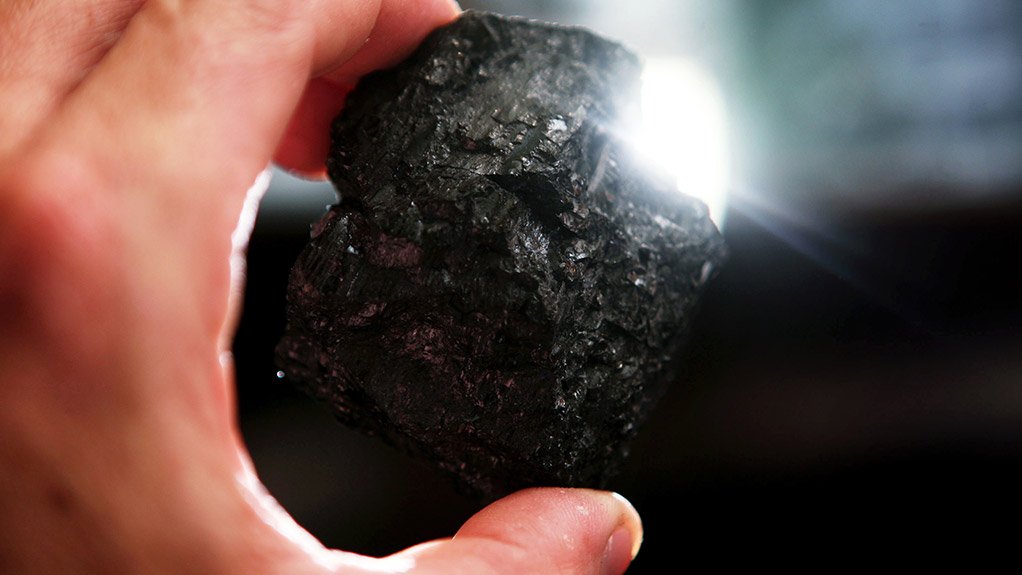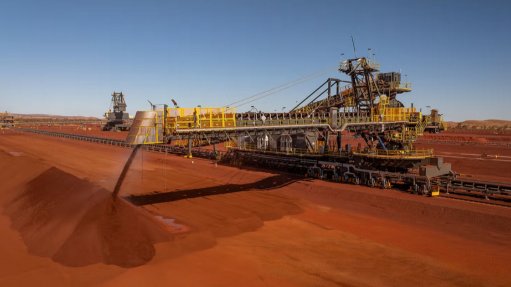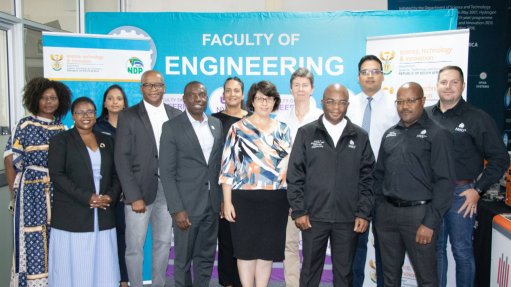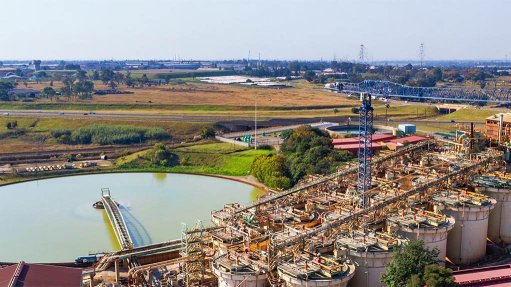Inland coal market urgently needs reforms, conference hears
South Africa’s inland coal market faces a critical need for reform, with inconsistencies in supply, declining coal quality and logistical bottlenecks threatening the reliability of the fuel that underpins much of the country’s industrial activity, OPack Network Holdings MD and marketing director Gavin Boyes has said.
Speaking at a coal industry colloquium hosted by advocacy organisation FFF Carbon, in Johannesburg, on November 7, he highlighted the pressure on inland users of coal, who accounted for only 4% of South Africa’s total coal production.
“Most of our coal production is earmarked for the export market, chasing higher returns on the global stage. That means the inland market is left with irregular, inconsistent supply,” he said.
Boyes added that the absence of new mining operations aimed at local consumption had exacerbated the problem, leaving industries reliant on batches of run-of-mine coal sold to traders.
Boyes described the logistical challenges facing the inland coal market as a major contributor to rising costs and inefficiencies. He said rail transport was constrained by maintenance backlogs, a shortage of locomotives and wagons and a prioritisation of export shipments.
“Railway infrastructure is indeed struggling, as we all know, maintenance backlogs have led to trains sitting stationary for up to six weeks at a time, locomotives and wagons are in short supply. Export consignments take priority over inland deliveries, and there is no space or spare capacity in the current system,” he said.
With rail unable to meet demand, many suppliers relied on road transport, which presented its own challenges. Boyes noted that a shortage of return loads forced hauliers to pay premiums of 40% to 60% for empty trips, while limited reliable hauliers, long transit times and insufficient road capacity further constrained coal distribution.
He pointed out that it could take up to four days for a truck carrying coal from Mpumalanga to reach its destination in the Western Cape – a significant time delay that coal buyers could ill afford.
Declining coal quality was another concern, Boyes said, noting that this affected both calorific value and integrity. He described the impact of blending lower-grade coal with higher-quality batches, warning that it could reduce efficiency, increase emissions, raise maintenance costs, and sometimes cause permanent equipment damage.
“You cannot blend coal in a way that preserves its original quality. What often happens is that a batch of high-grade coal is mixed with low-grade product from various sources, creating product that looks good on paper but performs poorly in practice,” he said.
Prices have also risen sharply in recent years, Boyes added, noting that local coal costs increased by about 45% between 2021 and 2024. Logistics costs for rail rose an average of 9% a year, with a 45% increase over the last five years, and road transport costs increased by about 6%, largely owing to diesel prices set by the Department of Mineral and Petroleum Resources.
“Because local prices are linked to the Australian Price Index parity structure, end-users face a cruel irony: when export prices fall, inland prices often remain the same,” he said.
Boyes stressed the effects on industrial end-users, saying that procurement officers and engineers often lacked the detailed knowledge to make informed coal purchasing decisions. Misplaced trust in suppliers can result in the purchase of low-quality coal marketed as premium.
“End-users buy what they think is a grade, only to find out that C-grade is C-grade dressed up as premium blended coal. It damages boilers and reduces efficiencies, and legitimate resellers are forced to compete with artificially cheap, poor quality products. Ultimately, it’s the end-user who suffers most with painful repairs, maintenance costs and inefficiencies,” he said.
To address these challenges, Boyes outlined several proposed reforms, including allocating a portion of production to the inland market, exploring cross-border sourcing, establishing central distribution hubs, overhauling the rail system, and implementing standardised quality control measures.
He also advocated for a domestic pricing model independent of export parity, fixed inland discount rates set yearly, and education for end-users on coal sampling, testing and boiler efficiency.
“The inland coal market is too important to fail. Without coal, much of the inland industry would grind to a halt, but without reform, the market will collapse under its own inefficiencies and bad practices.
“Our choice is clear: either we fix the system together, or we watch it erode piece by piece. Coal is still crucial. It will remain a cornerstone of South Africa’s inland economy for decades to come, but it must be managed, regulated and delivered in a way that ensures fairness, protects the end-user and embraces environmental responsibility,” Boyes said.
Article Enquiry
Email Article
Save Article
Feedback
To advertise email advertising@creamermedia.co.za or click here
Press Office
Announcements
What's On
Subscribe to improve your user experience...
Option 1 (equivalent of R125 a month):
Receive a weekly copy of Creamer Media's Engineering News & Mining Weekly magazine
(print copy for those in South Africa and e-magazine for those outside of South Africa)
Receive daily email newsletters
Access to full search results
Access archive of magazine back copies
Access to Projects in Progress
Access to ONE Research Report of your choice in PDF format
Option 2 (equivalent of R375 a month):
All benefits from Option 1
PLUS
Access to Creamer Media's Research Channel Africa for ALL Research Reports, in PDF format, on various industrial and mining sectors
including Electricity; Water; Energy Transition; Hydrogen; Roads, Rail and Ports; Coal; Gold; Platinum; Battery Metals; etc.
Already a subscriber?
Forgotten your password?
Receive weekly copy of Creamer Media's Engineering News & Mining Weekly magazine (print copy for those in South Africa and e-magazine for those outside of South Africa)
➕
Recieve daily email newsletters
➕
Access to full search results
➕
Access archive of magazine back copies
➕
Access to Projects in Progress
➕
Access to ONE Research Report of your choice in PDF format
RESEARCH CHANNEL AFRICA
R4500 (equivalent of R375 a month)
SUBSCRIBEAll benefits from Option 1
➕
Access to Creamer Media's Research Channel Africa for ALL Research Reports on various industrial and mining sectors, in PDF format, including on:
Electricity
➕
Water
➕
Energy Transition
➕
Hydrogen
➕
Roads, Rail and Ports
➕
Coal
➕
Gold
➕
Platinum
➕
Battery Metals
➕
etc.
Receive all benefits from Option 1 or Option 2 delivered to numerous people at your company
➕
Multiple User names and Passwords for simultaneous log-ins
➕
Intranet integration access to all in your organisation





















